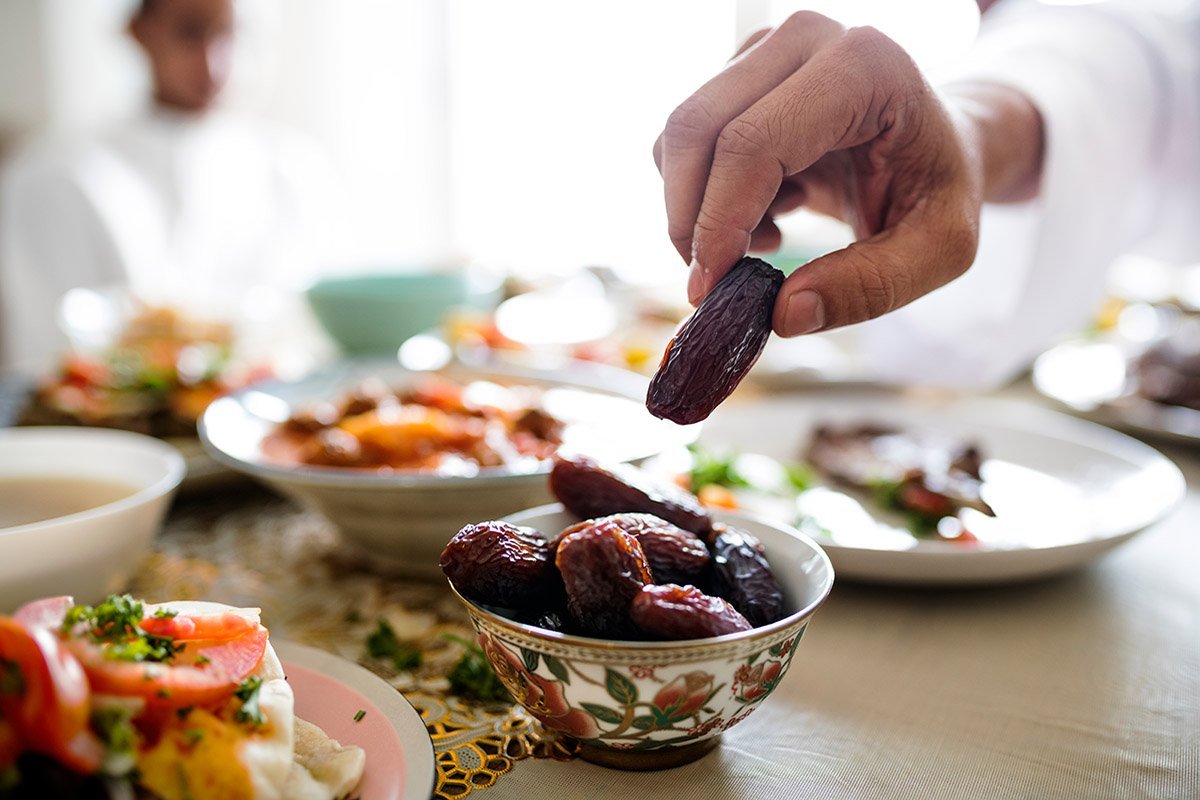Fact: Not getting enough fiber can increase your risk of weight gain and heart disease. But most Americans consume less than half the recommended daily intake!
Psst! Do you want to know one of the most effective weight loss and health secrets of all time? A trick that all but ensures you’ll remain full and satisfied while shedding pounds? The answer is clear as day: Eat more fiber.
It sounds far too simple to be legit, but it’s true. The oft-overlooked nutrient, which describes the indigestible material found in fruits, vegetables, whole grains, and legumes, is both extremely filling and brimming with health benefits—making it a vital component of every diet. The National Fiber Council recommends that adults consume 32 grams of the stuff a day, but as a nation, we’re coming up short. Very short, actually, with most of us getting between 10 and 15 grams a day. For a point of reference, that’s the equivalent of consuming just one large apple and three tablespoons of chickpeas—which is practically nothing!
Read on to find out exactly what can go awry if you don’t consume enough fiber; it may just be the kick in the rear you need to finally add more oatmeal and berries to your daily diet!
You Get Backed Up
Constantly feeling “backed up” in the bathroom may be a sign you’re coming up short on fiber, says Nutritionists. “Having a fiber-rich diet allows more water to remain in your stool, making it easier to pass through your intestines. When we don’t get enough fiber, it slows down our digestive system and makes it harder for us to eliminate our waste.” Add more of these high fiber foods to your daily diet to keep things—er, moving along smoothly—and ensure you hit the nutritional mark on the reg.
You’re Always Hungry
If you’ve ever eaten a huge tray of chicken nuggets and fries only to find your stomach growling soon after, it’s likely because your meal lacked fiber. Fiber helps to slow the digestion process, helping you feel fuller for longer. Adding a fiber-rich food like avocados, beans, brown rice, and pears to your meals and snacks will help keep those post-meal tummy rumbles at bay—and can subsequently aid weight loss efforts.
You Might Gain Weight
“When we don’t eat enough fiber, we tend to be hungrier and are more prone to overeating,” explains Schapiro. Research indicates that simply switching from a low-fiber diet to one that helps you hit the recommended 32 daily grams can help you slash 100 calories per day. Though 100 calories may seem trivial, that equates to a 10-pound weight loss over a year. For more simple ways to accelerate your flat belly wins.
Your Cholesterol Levels Spike
The less soluble fiber you consume (that’s the kind found abundantly in oatmeal, beans and brussels sprouts), the higher your risk for high cholesterol climbs, according to a meta-analysis published in The American Journal of Clinical Nutrition. Scientists hypothesize that fiber acts as a magnet as it moves through the intestine, attracting and carrying out the artery-clogging plaque that would otherwise spike cholesterol levels.
You Increase Your Risk of Stroke And Heart Disease
When your cholesterol levels are out of a healthy range—as a result of a low-fiber diet or otherwise—it can increase your risk of heart disease and stroke, according to U.S. National Library of Medicine data and findings published in the journal Stroke. That’s because both stroke and heart disease are brought on by the buildup of plaque in the arteries.
You Become Deficient in Other Nutrients, Too
If you’re not eating fiber-rich foods like whole grains, legumes, fruits, and veggies, there’s a good chance you also may not be getting enough of the other health-protective nutrients found of those foods. Check in with your M.D. if you know you’re not consuming much fiber to make sure you don’t have any type of major nutritional deficiency. A multi-vitamin and a well-rounded diet can likely help you get back on track towards better health.
You May Develop Diabetes
Get this: People who regularly eat low-fiber, fast-digesting high-glycemic foods like white bread, cookies, soda and white rice, are more than twice as likely as those who regularly consume the nutrient to develop type 2 diabetes. Yeesh! Scary stuff. What’s the connection? “Foods rich in fiber help to prevent blood sugar and insulin spikes, that over time could lead to diabetes,” explains Schapiro.
You’ll Be Sleepy All the Time
Besides upping your risk for diabetes, seesawing blood sugar levels can also leave you feeling lethargic—even if you got plenty of shut-eye the night before. To keep your energy and blood sugar levels stable throughout the day, reach for a fiber-filled source of complex carbs with a bit of protein and fat.

